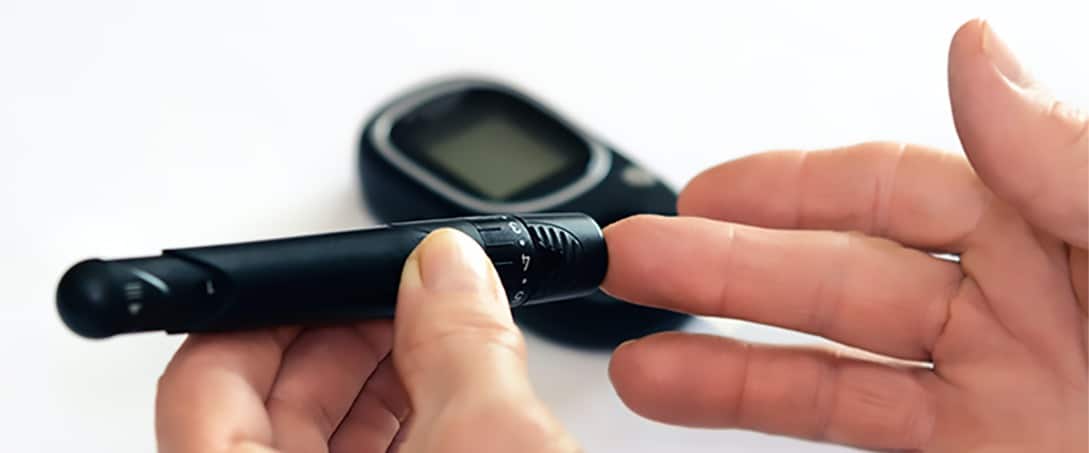M&D Clinical Corner: Diabetes Self-Management Education and Support (DSMES) for Pharmacies
The Clinical Corner is a monthly feature that highlights a variety of important pharmacist topics that is written by Morris & Dickson’s staff pharmacist, Paula Belle (RPh).
This month’s Clinical Corner will provide an overview of DSMES. The topics we’ll cover in this article include the following.
- What is DSMES?
- Can pharmacists provide and bill for DSMES services?
- Why should pharmacists provide DSMES services?
- How can a pharmacy become accredited or recognized to bill CMS and others for the provision of DSMES services?
- What is required to conduct a successful, compliant DSMES program?
- Overcoming barriers to DSMES
- Resources for pharmacies

What is DSMES?
- Diabetes self-management education and support (DSMES) provides an evidence-based foundation to empower people with diabetes to navigate self-management decisions and activities. DSMES is a cost-effective tool proven to help improve health behaviors and health outcomes for people with diabetes.[1]
- Many terms and acronyms are used when discussing DSMES services. Some of this terminology is defined below:[2]
- DSME (Diabetes Self-Management Education): the active, ongoing process of facilitating the knowledge, skill, and ability necessary for diabetes self-care.[2]
- DSMS (Diabetes Self-Management Support): the support that is required for implementing and sustaining coping skills and behaviors needed to self-manage on an ongoing basis.[2]
- DMSES (Diabetes Self-Management Education and Support): the ongoing process of facilitating the knowledge, skills, and ability necessary for diabetes self-care, as well as activities that assist a person in implementing and sustaining the behaviors needed to manage his or her condition on an ongoing basis, beyond or outside of formal self-management training.[2]
- DSMT (Diabetes Self-Management Training): The U.S. Centers for Medicare & Medicaid Services (CMS) uses the term training instead of education when defining the reimbursable benefit (DSMT). The term DSMT is used specifically as related to billing.[2]
Can pharmacists provide and bill for DSMES services?
- Pharmacists may serve as part of the multidisciplinary DSMES team, or they may provide DSMES directly.[3]
- While pharmacists may not bill CMS directly using their own NPI, the pharmacy itself may be able to obtain the correct PTAN and bill CMS for the provision of DSMT services.[3]
- If the pharmacist is employed by a pharmacy that is a Medicare part B provider and provides services such as urgent care and influenza vaccines, the pharmacy may be able to bill CMS for the provision of DSMT services.[3]
- Traditional DSMES settings may include pharmacies.[3]
- In order to bill CMS for DSMT, all providers including pharmacies must first be accredited or recognized by one of 2 organizations selected by CMS : The American Diabetes Association (ADA) (recognizes) or the Association of Diabetes Care & Education Specialists (ADCES) (accredits).[4]
Why should pharmacists provide DSMES services?
- Diabetes is a complex and costly disease that affects millions of people in the United States.[5]
- DSME is a cost-effective tool proven to help improve health behaviors and health outcomes for people with diabetes. While there is evidence to support the clinical and economic impacts of DSMES, the service remains widely underused.[5]
- In the United States, less than 5% of Medicare beneficiaries with diabetes and 6.8% of privately insured people with diabetes participate in a DSMES service within the first year of diagnosis.[6]
- One study found a 34% lower hospitalization rate for people with diabetes who had had at least one educational visit compared to people with diabetes who had had no educational visits.[6]
- In a three-year retrospective claims analysis of four million covered lives (including 250,000 Medicare beneficiaries), Medicare beneficiaries who completed a DSMES service demonstrated an average cost savings of $135 per month.[6]
- Considerable evidence exists linking DSMES participation to positive changes in health behaviors and improved diabetes-related outcomes. Benefits of DSMES participation can include:[7]
- Improved hemoglobin A1c levels
- Improved control of blood pressure and cholesterol levels
- Higher rates of medication adherence
- Fewer or less severe diabetes-related complications
- Healthier lifestyle behaviors, such as better nutrition, increased physical activity, and use of primary care and preventive services
- Enhanced self-efficacy
- Decreased health care costs, including fewer hospital admissions and readmissions

How can a pharmacy become accredited or recognized to bill Medicare and others for the provision of DSMES services?
- Accreditation and recognition processes help ensure that DSMES services offer quality education.[8]
- Being an accredited or recognized service benefits DSMES providers in many ways, including[8]
- The ability to bill for DSMT through Medicare, some state Medicaid agencies, and many private insurers
- Improved care and health status reporting
- Alignment with quality improvement and population health goals
- Access to ADCES or ADA resources and support
- CMS has authorized two organizations, the Association of Diabetes Care & Education Specialists (ADCES) and the American Diabetes Association (ADA), to grant accreditation or recognition.[8]
- ADCES uses the term accreditation, while ADA uses the term recognition.[8]
- Each certifying body[8],[9]:
- has a formal application process and requires supporting documentation
- requires a fee with applications (Currently $1,100)
- requires annual reports
- requires renewals (every 4 years)
- has a process for auditing existing programs to ensure continued conformance with accreditation/recognition criteria.
- For a comparison of ACDES accreditation criteria versus ADA recognition criteria, see this link: ACDES Accreditation vs ADA Recognition
- The ADCES and ADA use the National Standards criteria in accrediting DSMES services. The Standards are required for Medicare-specific reimbursement and outline recommendations for process, structure and outcomes related to high-quality DSMES services. [10]
- Due to the dynamic nature of healthcare and diabetes research, the National Standards are reviewed and revised approximately every 5 years by key stakeholders and experts within the diabetes care and education community.[11]
- The National Standards for DSMES were updated in 2022 and include the following 6 standards[11]:
- STANDARD ONE: Support for DSMES Services
- Pharmacies must have a formal corporate structure that supports the provision of DSMES services. Most pharmacies have this in place to meet PBM requirements.[12]
- STANDARD TWO: Population and Service Assessment
- Accrediting bodies want to see that this will be a sustainable program and a good service for the pharmacy.[12] This standard will have pharmacies review demographics from various sources to assess the population for average age, insured percentage, number of diabetics, literacy levels, etc.[13]
- STANDARD THREE: DSMES Team
- The DSMES instructor must be ONE of the following: Registered Nurse, Registered Dietician, Pharmacist, or any healthcare provider with Certified Diabetes Educator (CDE) or Board Certified- Advanced Diabetes Management credentials.[13]
- Pharmacists, Registered Nurses and Registered Dieticians who conduct DSMES educational sessions as instructors are NOT required to have CDE or BC-ADM credentials.[13]
- Pharmacists, Registered Nurses and Registered Dieticians who conduct DSMES educational sessions as instructors must complete 15 hours of diabetes-related continuing education each year.[13]
- If the pharmacy elects to utilize a nurse or dietician as a DSMES instructor, the pharmacy must follow state law regarding the supervision of nurses and dieticians by pharmacists.[13]
- STANDARD FOUR:Delivery and Design of DSMES Services
- Pharmacies must have properly designed day-to-day operations.[12]
- Staff training must be documented.[12]
- Pharmacies must employ an approved curriculum. Many are available from a variety of sources.[13]
- STANDARD FIVE:Person-Centered DSMES
- This is new for 2022 and requires that pharmacies provide custom education for patients. As an example, if a patient has had diabetes for an extended time, they probably do not need a finger stick lesson. Patients should receive help for the needs identified. [12]
- STANDARD SIX:Measuring and Demonstrating Outcomes of DSMES services
- The pharmacy must have a quality improvement process that is documented and planned every year. This may be simple or complicated.[12]
- Examples of assessment tools that may be employed to determine the effectiveness of the pharmacy’s DSMES program are provided by ADA in this document: ADA EXAMPLE ASSESSMENT TOOLS
- More information on each standard can be found at: 2022 National Standards for Diabetes Self-Management Education and Support
- ACDES requirements to meet each of these standards can be found at this link: ACDES INTERPRETATION OF 6 NATIONAL STANDARDS FOR DSMES SERVICE PROVISION
What is required to conduct a successful compliant DSMES program?
- To bill Medicare, the provider must have a DSMES program that is accredited by ACDES or recognized by ADA.[14]
- The provider of DMSES services must also be a Medicare provider billing for another reimbursable service before they can bill for DSMT.[14]
- The following entities can sponsor a DSMES program for billing CMS[14]:
- Hospitals
- Critical Access Hospitals
- Medical Practice Groups
- Federally Qualified Health Centers
- Skilled Nursing Facility
- Home Health Agency
- Rural Health Clinic
- Pharmacies
- Durable Medical Equipment Companies
- Pharmacists cannot bill under their own NPI number. The billing for DSMT would be done under the pharmacy’s NPI number assigned to the DSMES program named on the accreditation certificate.[14]
- The pharmacy must submit form CMS-855B to become a Part B provider. Even if they have completed a form CMS-855S or have been billing for Part D drugs or DME, they should complete the 855B to enroll the pharmacy as a Part B provider to bill DSMT to CMS.[14]
- The CMS provider enrollment process is detailed at this link: MEDICARE PROVIDER ENROLLMENT
- Eligible patients must have[15]:
- Documentation of a diagnosis of type 1, type 2, or gestational diabetes
- Diagnosis must be made using the following criteria:
- Fasting blood glucose ≥ 126mg/dL on 2 separate occasions
- 2-hour post-glucose challenge ≥ 200mg/dL on 2 separate occasions
- Random glucose test ≥ 200mg/dL with symptoms of uncontrolled diabetes
- Diagnosis must be made using the following criteria:
- A written referral from the treating physician or qualified non-physician practitioner (such as a physician assistant (PA), nurse practitioner (NP), or advanced practice nurse (APN).
- Documentation of a diagnosis of type 1, type 2, or gestational diabetes
- ADA and ACDES indicate that the 4 most critical times for delivery of DSMES services are [15]:
- At diagnosis
- During annual assessment
- When a person with diabetes has new complicating factors
- Upon transitions in care
- Qualified patients are eligible for 10 hours of DSMT during the initial DSMT period which must be completed within 12 consecutive months following the first billed DSMT visit.[14]
- For the initial training benefit, CMS is expecting 9 hours to be offered in a group setting and 1 hour as one-on-one with the individual. So, providers should offer both individual and group sessions.[14]
- The 2022 Medicare National Fee Schedule rates are:
- One-on-one session is billed using code G0108 and pays $56.06 (per 30 minutes.)
- Group sessions are billed to CMS using code G0109 and this pays $15.92 (per 30 minutes per patient.)
- These are national average rates.[14]
- You can enter the desired DSMT CPT code and your state and locality to locate the state-specific fees for your location at this link: CMS FEE SCHEDULE OVERVIEW
- DSMES providers cannot submit claims for DSMT until they are accredited.[14]
- The patient’s healthcare provider does not have to be present or sign notes.[14]
- State Medicaid program coverage for DSMES services may vary by state.[14]
- To find out more about which diabetes services are covered in each state use this link or contact your state’s Medicaid program: STATE INSURANCE AND MEDICAID COVERAGE REQUIREMENTS AND PROGRAMS FOR DIABETES

Overcoming barriers to providing DSMES services
Provider Awareness
- Find a “referral champion.” Identify a provider in the community who refers people with diabetes to DSMES services and is willing to have conversations with other providers in the area about the benefits of referring.[16]
- Promote the service to health care facilities, such as local health clinics and hospitals that are not providing DSMES.[16]
- Access additional means for addressing prescriber barriers and increasing referrals via this link: ADCES TIPS FOR REACHING PRESCRIBERS
Patient Awareness
- Counseling people with diabetes about what DSMES entails can emphasize the need for these services. For example, DSMES services will help them [17]
- Make better decisions about their diabetes
- Work with their health care team to get the support they need
- Understand how to take care of themselves and learn the skills to:
- Eat healthy.
- Be active.
- Check their blood sugar (glucose).
- Take their medicine.
- Solve problems.
- Cope with the emotional side of diabetes.
- Reduce the risk of other health problems.
- Ask if their healthcare provider has talked with them about DSMES, and if not, encourage them to proactively ask their provider for a DSMES referral.[17]
- Offer classes on various days of the week and at convenient times.[16]
- Increase frequency of class offerings.[16]
- Distribute flyers to diabetic patients. Access an example flyer here: EXAMPLE DSMES PROGRAM FLYER FOR PATIENTS
Pharmacy Readiness
- Some steps to prepare to provide DSMES services include:
- Assess the need
- As of May 2019, there were >30 million people with diabetes in the U.S. and just over 6,000 DSMES sites. At current numbers, each site would need to serve ∼5,000 persons with diabetes (PWD) per year, which is well beyond the capabilities of most existing sites.[18]
- Pharmacists can locate DSMES programs at this link: RECOGNIZED/ACCREDITED DSMES PROGRAM SITES
- Initial Steps to Prepare your pharmacy for a DSMES Program [13]
- Obtain accreditation for your pharmacy from one of the two approved organizations.
- Apply for the correct type of Provider Transaction Access Number (PTAN) with CMS Form 855. (Pharmacy not Mass Immunizer)
- Contact a billing platform to bill this for you. It is not NDC billing and most pharmacy software mgt systems won’t do this billing. Some pharmacy mgt software systems may be able to bill in conjunction with a platform.
- Provide or obtain appropriate classroom space. It does not have to be conducted in your pharmacy.
- Assure that the instructor pharmacist has the required type and quantity of diabetes oriented CEU
Resources for pharmacies
- CDC DSMES TOOLKIT: https://www.cdc.gov/diabetes/dsmes-toolkit/index.html
- ADA and ADCES 2022 NATIONAL STANDARDS FOR DSMES: https://www.diabetes.org/newsroom/press-releases/2022/ada-and-adces-update-national-standards-for-diabetes-self-management-education-support
- CMS DIABETIC SELF-MANAGEMENT TRAINING (DSMT) PROGRAM: https://www.cms.gov/Medicare/Provider-Enrollment-and-Certification/SurveyCertificationGenInfo/DSMT-Accreditation-Program
- CMS:Medicare Diabetes Self-Management Training: https://www.cms.gov/Outreach-and-Education/Medicare-Learning-Network-MLN/MLNProducts/Downloads/DSMT-Fact-Sheet-909381.pdf
- DSMES PROGRAMS NEAR YOU: https://www.diabeteseducator.org/living-with-diabetes/find-an-education-program
- CMS DIABETES-MANAGEMENT : DIRECTORY OF PROVIDER RESOURCES: https://www.cms.gov/files/document/diabetes-provider-resource-directory.pdf
Paula Belle (BS Pharmacy, RPh) has been the Clinical Programs Coordinator for Morris & Dickson since 2016. Prior to joining M&D, Paula held the positions of Clinical Pharmacist with Pharmacea Services and PharmMD/Adhere Health, as well as Market Pharmacist, Store Pharmacy Manager and District Pharmacy Supervisor with Walgreens. She holds a BS in Pharmacy from the University of Louisiana at Monroe, as well as Immunization and MTM Certifications from the American Pharmacists Association (APhA).
Stay connected with Morris & Dickson by following us on Facebook, LinkedIn, Twitter, Instagram and YouTube.
Sources
- Centers for Disease Control and Prevention. Diabetes Self-Management Education and Support (DSMES) Toolkit | Diabetes | CDC. 2021 2021-08-11T02:44:08Z; Available from: https://www.cdc.gov/diabetes/dsmes-toolkit/index.html.
- Centers for Disease Control and Prevention. Terminology | Background, Terminology and Benefits | DSMES Toolkit | Diabetes | CDC. 2021 2021-08-11T02:43:42Z [cited 2022; Available from: https://www.cdc.gov/diabetes/dsmes-toolkit/background/terminology.html.
- Centers for Disease Control and Prevention. DSMES Settings | Service Staffing and Delivery Models | DSMES Toolkit | Diabetes | CDC. 2022 2022-01-28T06:56:53Z [cited 2022; Available from: https://www.cdc.gov/diabetes/dsmes-toolkit/staffing-delivery/dsmes-settings.html.
- Centers for Disease Control and Prevention. National Standards for Diabetes Self-Management Education and Support | DSMES Toolkit | Diabetes | CDC. 2021 2021-02-04T07:49:27Z; Available from: https://www.cdc.gov/diabetes/dsmes-toolkit/standards/index.html.
- Centers for Disease Control and Prevention. Background, Terminology and Benefits | DSMES Toolkit | Diabetes | CDC. 2021 2021-08-11T02:43:41Z; Available from: https://www.cdc.gov/diabetes/dsmes-toolkit/background/index.html.
- Centers for Disease Control and Prevention. Overview of the Business Case | Building the Business Case for DSMES | DSMES Toolkit | Diabetes | CDC. 2021 2021-08-25T02:14:46Z [cited 2022; Available from: https://www.cdc.gov/diabetes/dsmes-toolkit/business-case/overview.html.
- Centers for Disease Control and Prevention. How People with Diabetes Benefit from DSMES | Background, Terminology and Benefits | DSMES Toolkit | Diabetes | CDC. 2021 2021-08-11T02:43:42Z [cited 2022; Available from: https://www.cdc.gov/diabetes/dsmes-toolkit/background/benefits.html.
- Centers for Disease Control and Prevention. DSMES Accreditation and Recognition Process | DSMES Toolkit | Diabetes | CDC. 2022 2022-01-28T03:05:47Z; Available from: https://www.cdc.gov/diabetes/dsmes-toolkit/accreditation-recognition/index.html.
- Centers for Disease Control and Prevention. Comparison of ADCES and ADA Accreditation/Recognition Processes | DSMES Accreditation and Recognition Process | DSMES Toolkit | Diabetes | CDC. 2021 2021-02-10T02:45:24Z; Available from: https://www.cdc.gov/diabetes/dsmes-toolkit/accreditation-recognition/comparison.html.
- American Diabetes Association. ADA and ADCES Update National Standards for Diabetes Self-Management Education and Support | ADA. 2022; Available from: https://www.diabetes.org/newsroom/press-releases/2022/ada-and-adces-update-national-standards-for-diabetes-self-management-education-support.
- Davis, J.C., et al., 2022 National Standards for Diabetes Self-Management Education and Support | Diabetes Care | American Diabetes Association. Diabetes Care, 2022. 45(2).
- Wolff, T. Billing for Diabetes Education Just Got Easier | National Community Pharmacists Association. 2022 [cited 2022; Available from: https://ncpa.thinkingcap.com/student/mycourse.aspx?id=57bcd51d-4fd2-417a-b4a2-5aff53372ac5.
- Wolff, T. Billing For Diabetes Education 101. 2022; Available from: https://ncpa.b-cdn.net/medialibrary/87df19b2-5a29-44a8-8306-b397f45c2061/512cdb83-7688-4a30-8bfb-50069456a3ff.mp4.
- Association of Diabetes Care and Education Specialists. FAQ: DSMES and DSMT Reimbursement
2022 [cited 2022; Available from: https://www.diabeteseducator.org/docs/default-source/about-aade/here8afac089-bf2e-4613-a87b-87b8a2e456bf.pdf?Status=Master&sfvrsn=bdb49158_3.
- Centers for Disease Control and Prevention. Increasing Referrals and Overcoming Barriers to Participation | DSMES Toolkit | Diabetes | CDC. 2021 2021-04-05T05:50:16Z 2022]; Available from: https://www.cdc.gov/diabetes/dsmes-toolkit/referrals-participation/index.html.
- Centers for Disease Control and Prevention. Overcoming Barriers to Referral and Treatment | Increasing Referrals and Overcoming Barriers to Participation | DSMES Toolkit | Diabetes | CDC. 2021 2021-02-09T11:14:48Z [cited 2022; Available from: https://www.cdc.gov/diabetes/dsmes-toolkit/referrals-participation/overcoming-barriers.html.
- Centers for Disease Control and Prevention. Empowering People with Diabetes to Access DSMES | Increasing Referrals and Overcoming Barriers to Participation | DSMES Toolkit | Diabetes | CDC. 2021 2021-08-11T02:42:46Z [cited 2022; Available from: https://www.cdc.gov/diabetes/dsmes-toolkit/referrals-participation/empowering.html.
- Youssef, G., 2019 Health Care & Education Presidential Address: It’s All About Access! | Diabetes Care | American Diabetes Association. Diabetes Care, 2021. 44(1).



